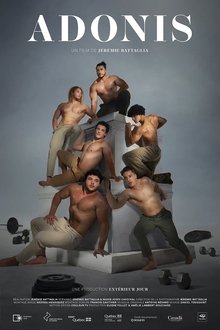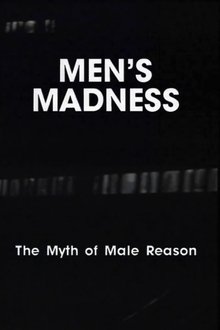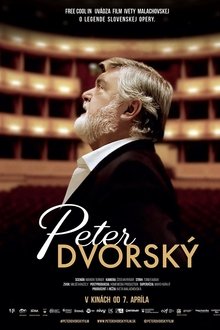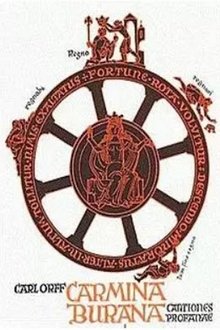You could be forgiven for mistaking Charlie Siem for James Bond. Whether he's driving an orange Porsche to his cliff-top Monaco mansion, ordering martinis or looking suave in a designer suit, he is a man on a mission. It isn't to hunt down SPECTRE, but to find perfection in everything he does. Whether it's performing on stage, recording albums, or selecting a suit, Charlie demands the best, of himself and others. Despite an entourage dubbed ‘Charlie's Angels', he's lonesome, and complains that people can't relate to him. Danish filmmaker Eva Mulvad, with patience and panache, delves into this life of privilege to find commonalities of ambition and desire.
Related Movies

DORA - Escape into Music (2022)
The pianist Kyra Steckeweh and the filmmaker Tim van Beveren search for traces where Countess Dora Pejačević (1885-1923) lived and worked. Their documentary is a journey through time to a half brilliant, half broken Europe.

Harry Styles: The Finishing Touch (2023)
Hit after hit, pop-icon Harry Styles, once the centerpiece of the world's biggest boy bands has grown into someone who isn't afraid of self-expression, continuing to reject the traditional confines of masculinity.

Do I Sound Gay? (2015)
What makes a voice “gay”? A breakup with his boyfriend sets journalist David Thorpe on a quest to unravel a linguistic mystery.

Leonard Bernstein: A Genius Divided (2018)
One of the first US born conductors to receive worldwide fame, Leonard Bernstein is an exceptional composer and certainly not only due to The West Side Story. Instead of concentrating exclusively on his most famous work, Thomas von Steinaecker sets out to paint a complete picture of Bernstein. Thus, the documentary focusses on the American’s less known later works and on three compositions in particular: his Mass, the musical 1600 Pennsylvania Avenue and the great final opera A Quiet Place. The film paints a vivid picture of the multitalented Bernstein, struggling with his role as composer and conductor, tackling the tension between successes and flops, between the politics of his time and his own liberal humanitarian claim. It looks back on Bernstein’s major achievements, such as his acclaimed conducting of Mahler and his involvement in the Young People’s Concerts, and it shows Bernstein’s work with young aspiring musicians as well as his political commitment.

Vick (2020)
A comprehensive reminisce at each chapter of former NFL quarterback Michael Vick’s saga–the incredible rise, shocking fall and polarizing return.

Tanglewood: So you want to be a conductor (1985)
In 1985, cameras take a look inside the Berkshire Music Center, the most prominent pre-professional classical music academy in the US. Seiji Ozawa, Leonard Slatkin and others work with the next generation younger conducting talent.

Wait for Your Laugh (2017)
The life and career of comedian Rose Marie is documented through interviews with friends and colleagues as well as never-before-seen home movies shot by the actress herself.

Shiny Objects - The Conductor with ADHD (2022)
Recently diagnosed with ADHD, a symphony conductor uses the career shutdown of the 2020 pandemic to dive into her mental health. She looks for ways to face the challenges and honour the gifts of being neurodiverse.

Tanglewood Music School and Music Festival (1949)
This video depicts Tanglewood in its very early years. It contains very rare footage of Serge Koussevitzky and Aaron Copland.

Boulez at 80 (2005)
Pierre Boulez conducts the BBC Symphony Orchestra and Chorus in a special concert from the Barbican, as part of the composer's 80th birthday celebrations. The programme contains two compositions by Debussy; Jeux and Trois ballades de Villon, as well as Daphnis et Chloé by Ravel, featuring soprano Elizabeth Atherton as soloist.Presenter Charles Hazlewood interviews Boulez and discusses the concert with guest Sir Peter Maxwell Davies.

Adonis (2024)
A hard-hitting documentary that tackles head-on a controversial but increasingly alarming subject: young men's obsession with the perfect body, and the use of performance-enhancing drugs to achieve it. Once the preserve of top-level athletes, the use of anabolic steroids has become endemic among teenagers and young men with a passion for bodybuilding. Daring to tackle head-on the taboo of male beauty standards, Adonis offers a field investigation into the heart of this muscle-building machine, questioning the reasons behind and the physical, psychological and social risks of this race to the perfect body. As he stages his own vulnerability, the filmmaker lifts the veil on the scale of the public health crisis that is looming.

The Art of Singing: Golden Voices of the Century (1998)
Imagine a window into the past. Imagine finally connecting singers' bodies to the voices you have always treasured on record, watching footage of performances from another era. All of singers featured here have something in common (with one exception, Sutherland): they sang and performed on stage before the advent of filmed opera. . And it shows, for the first time, a few tantalizing minutes of recently recovered footage from Callas' legendary Lisbon Traviata, featuring Addio dal Passato and Parigi oh cara with Alfredo Kraus. This DVD will leave you asking for more.

Conductivity (2020)
Conductivity is a film about creative leadership told through the story of three young conductors at the prestigious Sibelius Academy in Helsinki, Finland; I-Han Fu (Taiwan), Emilia Hoving (Finland) and James Kahane (France). When stepping on the podium, they are put under a magnifying glass. Conductor training, in essence, is leadership training. The film gives a unique viewpoint to follow the students, as this is the first film about conductor training at the Sibelius Academy.

Lindsey Stirling: Brave Enough (2017)
Beginning on the eve of her thirtieth birthday, “Brave Enough,” documents violinist Lindsey Stirling over the past year as she comes to terms with the most challenging & traumatic events of her life. Through her art, she seeks to share a message of hope and courage and yet she must ask herself the question, “Am I Brave Enough?” Capturing her personal obstacles and breakthrough moments during the “Brave Enough,” tour, the film presents an intimate look at this one-of- a-kind artist and her spectacular live performances inspired by real-life heartbreak, joy, and love.

Men's Madness - The Myth of Male Reason (1991)
Provocative, feminist critique of man’s technological progress.

Stephen Curry: Underrated (2023)
The remarkable coming-of-age story of Stephen Curry—one of the most influential, dynamic, and unexpected players in basketball history—and his rise from an undersized college player to a four-time NBA champion.

Tough Guise 2 (2013)
In this highly anticipated update of the influential and widely acclaimed Tough Guise, pioneering anti-violence educator and cultural theorist Jackson Katz argues that the ongoing epidemic of men's violence in America is rooted in our inability as a society to move beyond outmoded ideals of manhood.


